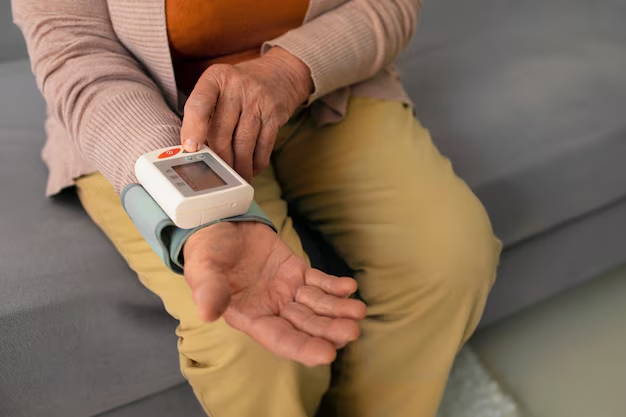Understanding the Connection: Can Pain Lead to Hypertension?
If you've ever felt your blood pressure rise with stress or anxiety, you're not alone. Many people experience a similar response, whether it's due to an uncomfortable situation at work or physical pain from an injury. So, does pain cause hypertension? Read on as we explore the intricate relationship between pain and high blood pressure, shedding light on their interaction and offering insights into what you can do about it.
What Is Hypertension?
Hypertension, commonly known as high blood pressure, is a condition where the force of blood against the artery walls is too high. It often develops over several years and may not show noticeable symptoms, but it can lead to significant health risks like heart disease and stroke if left unmanaged. Normal blood pressure is usually around 120/80 mmHg, while hypertension is defined by readings consistently over 130/80 mmHg.
Types of Hypertension
- Primary Hypertension: Gradually develops over many years without a specific cause.
- Secondary Hypertension: Results from another underlying condition, such as kidney disease or hormonal disorders.
The Role of Pain in Blood Pressure
Pain is an unpleasant sensation that signals potential tissue damage. When you experience pain, your body's natural response is to activate the sympathetic nervous system—the fight-or-flight reaction. This response can temporarily increase blood pressure by:
- Causing the heart to pump more rapidly.
- Constricting blood vessels.
- Releasing stress hormones like adrenaline and cortisol.
Acute vs. Chronic Pain
- Acute Pain: Short-term pain resulting from injury, surgery, or illness. This can lead to temporary spikes in blood pressure.
- Chronic Pain: Persistent pain lasting for weeks to years, often seen in conditions like arthritis or fibromyalgia. Chronic pain can contribute to long-term increases in blood pressure.
How Pain-Induced Hypertension Affects Your Health
When pain causes frequent or prolonged spikes in blood pressure, it can result in increased strain on your cardiovascular system. Over time, this may lead to:
- Heart Disease: High blood pressure damages arteries, making them less elastic, which restricts blood flow and oxygen to your heart.
- Kidney Damage: Hypertension can harm the blood vessels in your kidneys, impacting their ability to filter waste effectively.
- Stroke: Elevated blood pressure can weaken arteries in the brain, increasing the risk of rupture or blockage.
The Vicious Cycle of Pain and Hypertension
Chronic pain can cause hypertension, and hypertension can exacerbate the perception of pain, creating a feedback loop that can be challenging to break. This cycle underscores the importance of addressing both conditions together for effective management.
Managing Pain to Control Hypertension
While it's clear that pain can influence blood pressure, understanding how to manage it is crucial for maintaining heart health.
Non-Medical Approaches to Pain Management
- Physical Therapy: Helps in strengthening muscles and improving range of motion, often reducing pain levels.
- Mindfulness and Meditation: Techniques like deep breathing and meditation can lower stress and reduce the perception of pain.
- Exercise: Regular physical activity boosts endorphin levels, which are natural pain relievers.
- Diet: Consuming anti-inflammatory foods may help manage pain and improve overall health.
Medical Interventions
- Medication: Analgesics and anti-inflammatory drugs can help manage both pain and inflammation, indirectly affecting blood pressure.
- Cognitive Behavioral Therapy (CBT): Psychological support to help change the perception of pain.
Key Considerations for People with Pain and Hypertension
If you are dealing with both chronic pain and hypertension, it’s important to:
- Monitor your blood pressure regularly.
- Keep track of pain triggers and how they affect your well-being.
- Work with healthcare providers to create a comprehensive management plan.
- Avoid self-diagnosing or making medication changes without professional advice.
The Importance of a Holistic Approach
Effective management of pain and hypertension often requires a multi-faceted approach, combining lifestyle changes with medical interventions. Listening to your body's signals and maintaining regular healthcare visits is vital.
Final Thoughts: Seeking Balance for Better Health
Understanding the link between pain and hypertension empowers you to take control of your health. By adopting a proactive stance and exploring various management strategies, you can alleviate pain and, in turn, help manage your blood pressure. Remember, while pain can complicate your health, it's only one piece of the puzzle. Prioritizing a balanced lifestyle, adequate medical care, and stress reduction can greatly improve your overall well-being.
Summary of Key Takeaways:
- 📈 Hypertension Basics: Understand the types and risks of high blood pressure.
- 🤕 Pain's Impact: Recognize how both acute and chronic pain can elevate blood pressure.
- 🔄 Cycle Awareness: Be aware of the cycle where pain influences hypertension, and vice versa.
- 💪 Management Strategies: Utilize physical therapy, mindfulness, and proper diet to manage pain.
- 🧘♂️ Stress Reduction: Adopt relaxation techniques to help lower blood pressure.
- 👩⚕️ Professional Guidance: Work closely with healthcare providers for an effective plan.
- 📝 Tracking and Monitoring: Regularly monitor blood pressure and keep track of pain patterns for comprehensive management.
By being informed and proactive, you can navigate the complexities of pain and hypertension, moving towards a healthier, more balanced lifestyle. 🧡

Related Articles
- Are Eggs Bad For Hypertension
- Are Endocrine Disorders Causing Hypertension Rare
- Can Alcohol Cause Hypertension
- Can Allergies Cause Hypertension
- Can Anemci People Get Hypertension
- Can Anemia Cause Hypertension
- Can Antibiotics Cause Hypertension
- Can Anxiety Cause Hypertension
- Can Asthma Cause Hypertension
- Can Atherosclerosis Cause Hypertension
